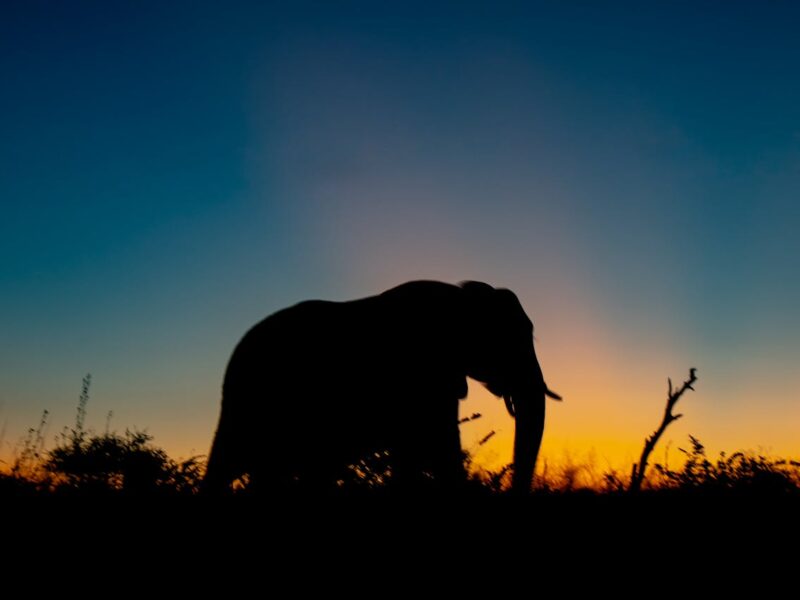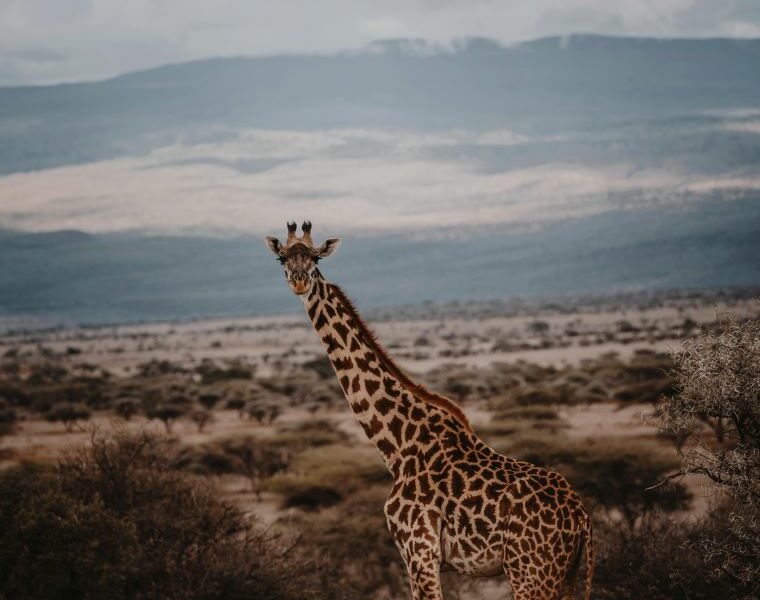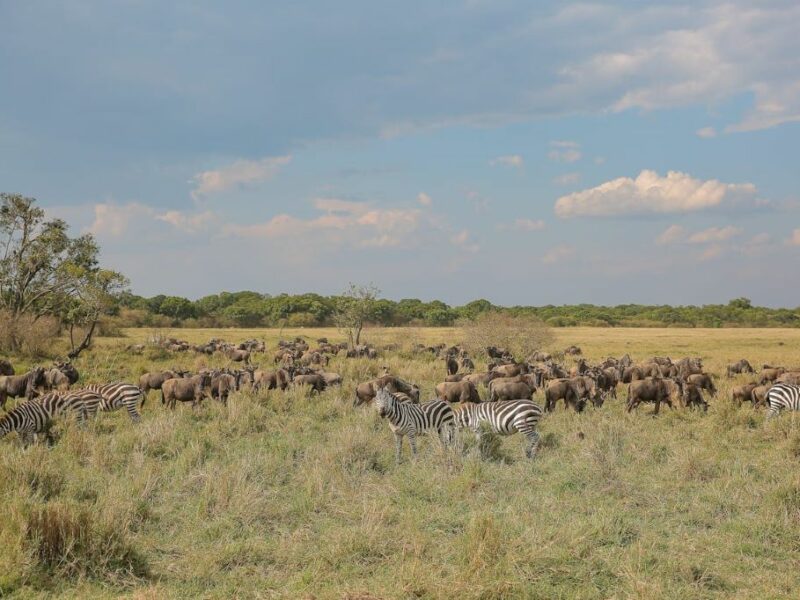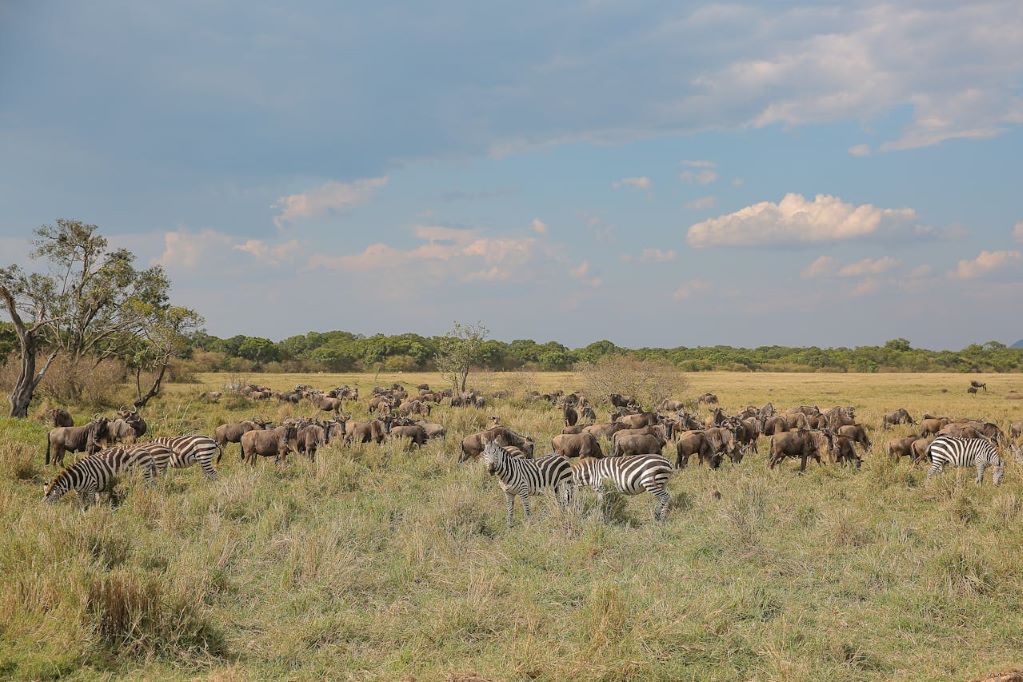Preparing for a game hunting safari in Africa? The question now is, what is going to be essential, and what is going to be classified as a luxury item?
Next concern flashed through the hunter’s mind: As an international traveler, I am only going to be allowed a maximum of 50 pounds of checked luggage. Oh, wait, depending on the airline I am going to be traveling on, I can be allocated another 16-18 pounds. OK, that is not too bad, I think I can manage! The question is, will you make the correct choices? The challenges on an African hunting trip are not only about packing and preparing rifles, permits, and bullets. The reality is that you will be far from home, and you will have limited access to any type of retail outlet. Whilst hunting in the wild, you may be just lucky enough to buy a cold Coke. But remember, a warm Coke is always better than a cold Pepsi!
[DYNAMIC-BLOGTABLEOFCONTENT]
What should I pack on my African safari?
The answer is simple. You should pack what is going to be essential and what will be needed. You must ensure that your African safari hunting trip, which is costing a small amount of change, is not going to be ruined by some small oversight. Trust me, this can and does happen on a very regular basis!
Being uncomfortable in any sense can make the hunter lose focus, be miserable, and become despondent. You will become just another grumpy, miserable African visitor who made a terrible packing mistake.
If you are planning to extend the Africa safari hunting trip and do some sightseeing along the way, you will have to separate hunting gear and social clothing. An option in this instance will be to donate a few old hunting safari clothes to the locals who assisted you while on your game hunting safari. This small donation can then create a little space to purchase the sought-after clothing for the balance of your vacation in Africa.
Clothing in Africa is a very sought-after commodity. Do not be fooled by skinners, trackers, and chefs in fancy gear supplied by outfitters. Poverty, hunger, and malnutrition are very real in Africa. The good news is that because it is Africa, clothing can be multi-purpose unless you are attending a special event.
.

Can you wear jeans on an African safari?
Yes, jeans can be worn when hunting in Africa. They are versatile, tough and durable. The hunter does not have to be in full camouflage from head to toe unless, of course, you are being sponsored by an international clothing line.
Should I pack candy for local children I may meet during my Africa safari hunting trip?
No, it is a common mistake that visitors to Africa make. As much as visitors think giving out sweets, candy, and chocolate to local children is a clever idea, it is not. Children in remote parts of Africa do not have access to dentists and health professionals. Regular eating of candy can create obvious health and dental issues. Most rural African children do not have a toothbrush or toothpaste.
How much money should I take on an African Safari?
Now, this is always the big question!
- Rule number one in Africa, every resident can see from a mile away that you are a foreigner, and they can see your pockets bulging with foreign currency. You do not need sticky little fingers stripping you of your hard-earned wages.
- Most of your game hunting safari costs would have already been paid to the airline, hotel if you are overnighting, and your outfitter in advance. Generally, there will be no need for cash during your safari as meals, drinks, and refreshments are all-inclusive.
- It is suggested that when entering your chosen port of entry into Africa, you convert your international currency into local currency if available. Even if the country next door to your hunting destination’s currency is available, do the swap.
- Foreign visitors to Africa do not really understand the power in Africa of foreign currency. Do some research check exchange rates and do the age-old McDonald’s cost comparison to give you an idea of the value of your hard money.
- Pack enough cash for a few cool drinks and snacks along the way and tips for skinners, trackers, and general staff. When it comes to tipping your professional hunter, remember he also has a bank account and will welcome cash transfers. When it comes to cash, do not keep it all in one place. Split between your luggage, some in your wallet, and some in a hidden jacket pocket.
- It is not advisable to carry piles of cash in Africa, or most parts of the world for that matter!
Medicines, Preventative Measures, and Toiletries When Safari Hunting
Your African hunting safari is going to be somewhere remote and hopefully in the wild part of the “Dark Continent.” Africa was originally dubbed “The Dark Continent” by the Welsh journalist and explorer, Henry Morton Stanley, who saw Africa as being mysterious.
This means that basic day-to-day requirements need to be fully provided for and packed before departing on your hunting adventure.
Basic checklist items:
- Sufficient toothpaste and deodorant. You may not need the deodorant while on safari, but those fellow travelers when leaving Africa will welcome the fact that you have in supply.
- A pair of tweezers. Africa has a way of piercing your body with thorns or stings and if not removed can cause unnecessary irritation annoying you for a few hours every day.
- Ladies, ensure that you have packed enough feminine hygiene products. Tampons on a game hunting safari can also be lifesaving in the event of an accidental discharge or other hunting accident. They can be placed directly inside the wound to prevent a bleedout.
- A small bottle of disinfectant, or disinfectant cream.
- If you are going into a malaria area, get a prescription from your medical practitioner and check if the tablets must be taken before the time.
- Sunblock is vital. When applying do not put it on your forehead as the sweat will cause it to run into your eyes and irritate them during your hunt.
- For those hunters wearing contact lenses, ensure that you have a spare bottle in case something happens to your original bottle of solution.
- Eye drops are always a necessity. Just a basic saline solution will suffice. Dust and dirt can irritate the eyes which can lead to an infection affecting your ability to perform the perfect shot.
- A cortisone cream or in the table form. Good for insect bites, itching, and rashes.
- For those with hemorrhoids, do not forget your cream.
- A few sachets of rehydrate. In African heat, hunters can lose as much as three gallons of water a day through sweating as the body tries to cool down.
- Headache tablets.
- Tablets for diarrhea and nausea.
- Advise your medical practitioner that you will be traveling in Africa and request a general antibiotic. After long congested flights hunters often arrive with influenza or a cold after being cramped together for so many hours with strangers from all over the world. We saw how quickly COVID-19 spread in these circumstances.
- If you have a special script, remember to include it with all your other travel documents.
- Big game hunting in Africa is exhilarating. Under these circumstances, it may be an innovative idea to pack a few aspirins which are good if the hunter possibly suffers a heart attack.
- For those hunters who suffer from Asthma, keep an extra pump available.
- Hunters suffering from diabetes need to ensure that extra insulin is packed and available.
- If you have any allergies, make sure that you have packed the correct form of medication.
- In terms of prevention, be sure you have the necessary goods to fight off ticks and mosquitoes. Even though you may be traveling to Africa during the winter months, these pests are still around. A good unscented “body butter” works well if rubbed on your legs and arms.
- Nail clippers are also essential. For some unknown reason, nails seem to grow at a rapid rate in the African bush.
- A few condoms can also come in handy. No, not for what you are thinking. Should it be raining, a condom over the end of your barrel assists in keeping out water and mud. So, it need not be ribbed or lubricated and has a list of unique features!
- Micropore tape. Works very well to close off small but deep cuts.
- A mall tape measure is also a good item to have in your arsenal. I cannot tell you how many times we have been hunting and wanted to measure the trophy only to find out that the outfitter does not have one available.
The above list may seem long and excessive. These are small items and do not take up much space at all in your luggage. The weight contribution will be minimal. Forgetting a single item if needed can turn your dream game hunting safari into a potential nightmare.
It is recommended that before traveling, whether your game hunting safari is seven or twenty-one days, to schedule a quick stop for a medical evaluation, just to check the basics like blood pressure and cholesterol. A trip to the dentist should also be on the checklist. Hunting dangerous game in Africa with toothache is not fun. I have been there, and it is not fun trying to remove your tooth while supposedly enjoying your hunting safari.
While your professional hunter may have a few basic supplies on hand, please do not at any time consider him to be a mobile pharmacy or drug store.
What clothing to pack while on an African Safari Hunting Trip?
African winters can be very cold with temperatures dropping to below twenty degrees Fahrenheit. The hunter needs to be prepared for freezing weather, which is mostly at night and warmer temperatures during the day.

Basic Items For Your African Hunting Safari
- If you are hunting dangerous animals that are nocturnal from a blind, it is going to be cold in winter. A thick jacket, gloves, and a woolen beanie are necessities. Warm undergarments are an additional consideration. The hunter will be sitting still, reducing blood circulation.
- A lightweight rain jacket always comes in handy.
- In summer, shorts are always worn unless you are walking through long grass and scrub. Long pants can also add protection from thorns.
- A long-sleeved shirt comes in handy against thorns, and insect stings, and helps to add protection from the blazing African sun.
- Check with your outfitter before departure if there are washing facilities for your clothes. There normally are but if not, pack a small box of hand washing powder.
- A wide-brimmed sunhat is essential. While a peak cap may feel more comfortable, a wide-brimmed hat can protect your neck and ears. In Africa, the sun is your biggest enemy, more dangerous than any of the Big 5 animals. Should you get heatstroke, rest in a shady area. Heatstroke is a severe medical emergency. Apply ice packs to the armpits, neck, and groin. Liquid intakes should be slightly salty and, if possible, you can submerge your entire body in water.
Signs of Heatstroke include:
- Dizziness and nausea
- Terrible headache
- Confusion
- Dry or damp skin
- Rapid and strong pulse
- Fainting and or loss of consciousness.
Additional Items to Pack on Your African Safari Hunting Trip
- A small gun-cleaning kit
- A basic and functional knife. There is always something that needs cutting or stabbing.
- A sewing kit comes in handy. Buttons somehow seem to fall off no matter the quality of the clothing.
- A Leatherman or some other multi-purpose tool.
These items are not to be taken on the plane as hand luggage.
What is the best month to go on an African Hunting Safari?
The best time of the year will depend on your target species. The autumn and winter months are usually the best in Africa running from early April until the latest September. October and November are also hunted but the hunter then needs to factor in the additional heat, humidity, and increase in insect activity.

When game hunting in Africa, it is often the trivial things that can negatively impact your safari. Losing one day to sickness, allergies, and so forth, is one day too many.
If the travel bug has bitten you, and you need further information, read more about African safari hunts and hunting trips in Africa.
Author: P.C. van Wyk
